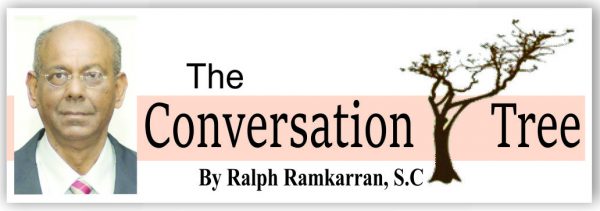November 17 ,2020
Dear Editor,
The GHRA has been contacted by several irritated people requesting that we respond to Mr. Ralph Ramkarran’s Con-versation Tree column in SN 11/15 on the Argentine Forensic Team. While we do not normally respond to condescending pieces, we feel compelled to make an exception in this case.
Most of the column consists of laborious quotes culled from various US websites making academic claims between whether forensic anthropologists are scientists or not. The column culminates in a demand that “the promoters of the (EAAF) team’s visit ought to explain to the Guyanese public what exactly the forensic anthropologist and the forensic pathologist would achieve.”
While the Column describes the team’s history, conspicuously absent are any quotes from the EAAF’s own web-site (eaaf.org) which could provide ‘the Guya-nese public’ with ‘exactly’ the technical details Mr. Ramkarran reckons they need.
Mr. Ramkarran‘s demand is premised on “the fact that the Minister of Home Affairs has explicitly rejected the EAAF”. In the interest of ‘exactitude’, the Minister has not issued any such public statement. His reported response in the media was to the effect that normally Guyana works with the US, Canada and UK in matters of this nature.
The GPF reason for wanting the EAAF is to assist them in their investigation. Without casting any aspersions on the competence of the GPF, the GHRA’s additional reason is hopefully to provide a version of the truth acceptable to a wide cross-section of Guyanese in the interest of laying the issue to rest. The Govern-ment being prepared to assist in bringing the Team would redound to its credit for having gone the extra mile.
Mr. Ramkarran makes much of the RSS Report which makes complimentary remarks about local police efforts, without offering them much else by way of investigational assistance, judging by the resort to a $3m reward shortly after receipt of the Report. To date, the reward has led to the arrests of seven or so people, largely of elements known locally to be involved in ganja growing in the backdam.
While you could probably find a Guyanese or two who care whether forensic anthropology is a science, there would be many more wondering what Mr. Ramkarran’s real problem is with bringing this team to Guyana.
Yours faithfully,
Mike McCormack
Guyana Human Rights Association

